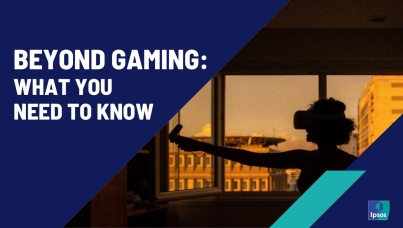Essential Digital Skills UK 2021
Around a fifth of UK adults lack the Foundation Level of digital skills
The Foundation Level is the most basic level of the Essential Digital Skills (EDS) Framework. In 2021, 81% of the UK adult population have the Foundation Level and can complete the seven basic digital tasks by themselves. In contrast, 6% of the adult population are considered digitally excluded and are unable to do any of these tasks by themselves. Encouragingly, this group has decreased in size since 2020 when research was conducted, prior to the COVID-19 restrictions in the UK. In line with this, more people can now do at least some of these tasks (14%, up six percentage points).
Those who are digitally excluded and unable to do any of these seven tasks are more likely than those who can do at least some (1-6) tasks to be aged 75+, not in work, living alone, have no formal education and to have a sensory impairment that affects their day-to-day living.
Of the seven basic tasks it is finding and opening different applications on a device, connecting a device to a WI-FI network and using different menu settings to improve accessibility that the population are least likely to be able to do by themselves.
Those adults who have the Foundation Level can progress to achieve EDS for Life (also known as Life EDS) and 79% of UK adults have Life EDS, demonstrating ability in each of five Life skill categories. This measure is stable year on year. Of the 21% without Life EDS, the majority (91%) do not have the Foundation Level - achieving the fundamental digital skills is, therefore, a big obstacle. As we saw with the Foundation Level, age and education are highly correlated with digital skills. However, in the last year the skills gap between those least likely to have Life EDS, those aged 75+ (26%), and those most likely, 18-24 year olds (97%), has widened.
Big improvements seen in terms of Work EDS
Having Essential Digital Skills for Work (also known as Work EDS) has become even more crucial in the last year. The impact of the pandemic has resulted in many people working virtually and service providers and businesses moving their interactions online for the first time, or working in different ways.
Nearly two thirds (64%) of the UK working population have Work EDS in 2021, a significant increase of 16 percentage points from 2020, with improvements seen across all tasks and skill areas. Three quarters (75%) can now do at least ten of the seventeen work digital tasks surveyed, up from 57% in both 2019 and 2020. However, it is important to remember that despite this marked improvement, just over a third (36%) of the UK workforce are without the digital skills required for work.
For further information find the full report here.
Technical Note
On behalf of LBG, Ipsos interviewed a quota sample of 4,129 participants aged 18+ years in the UK (Great Britain and Northern Ireland) via their telephone Omnibus between 12 March - 25 April 2021. Quotas were set by age, gender, working status, property tenure, region and device ownership. Data are weighted to represent the known population of this audience. Due to COVID-19 restrictions telephone interviewing was used in 2021 whereas face-to-face interviewing was used in 2019 and 2020.
For further information, find the full technical note here:
Ipsos Essential Digital Skills 2021 Technical Notes (lloydsbank.com)





